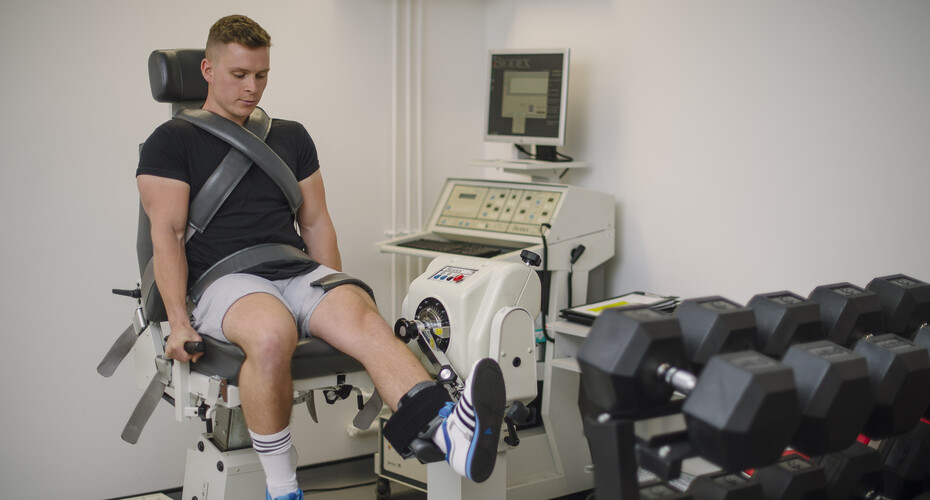Nutritional Physiology Research Group
Our research interests are focused on human skeletal muscle metabolism in response to exercise and nutrition, how this adapts with exercise training, physical inactivity and ageing, and how we can affect adaptation and performance with novel nutritional, exercise or pharmacological interventions.
We measure metabolism as directly as possible with stable isotope approaches, arterio-venous balance methods and/or muscle biopsy sampling (e.g. to determine acute and chronic muscle protein synthesis rates).
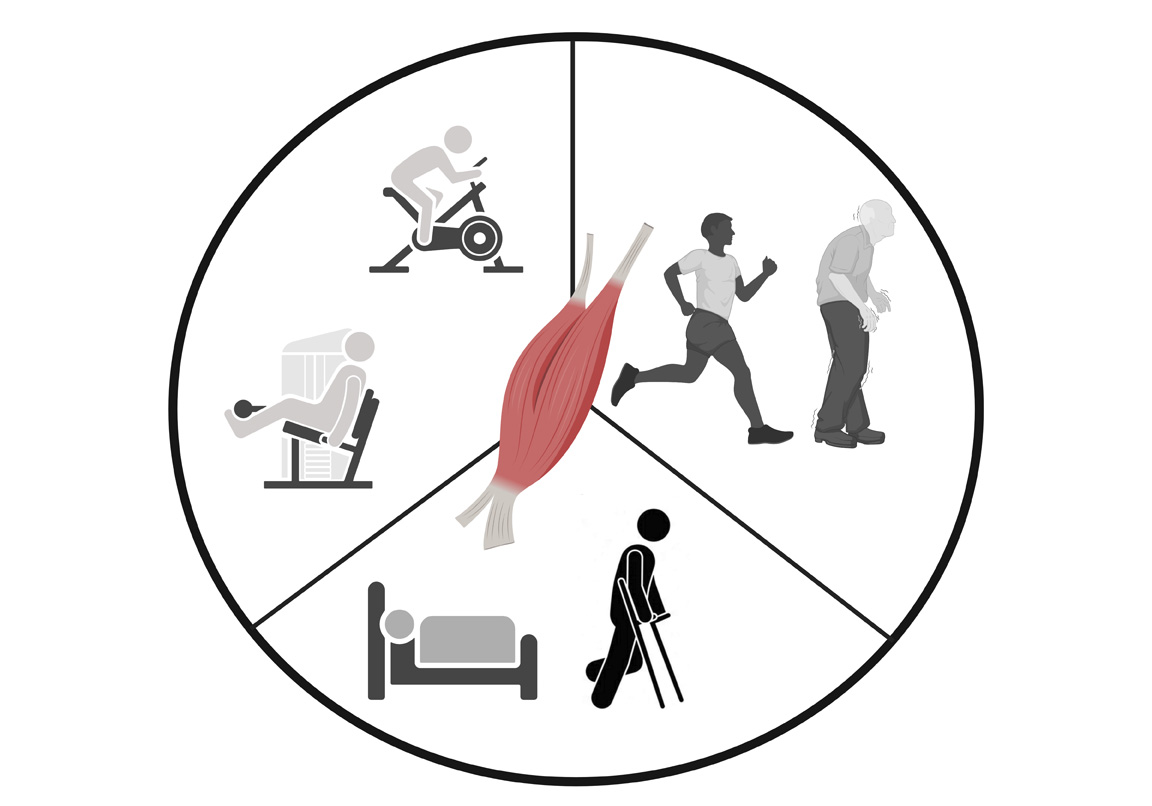
Current research
Our facilities: Nutritional Physiology Research Unit
We perform this research in the newly refurbished, access-controlled Nutritional Physiology Research Unit, which consists of:
Exercise labs
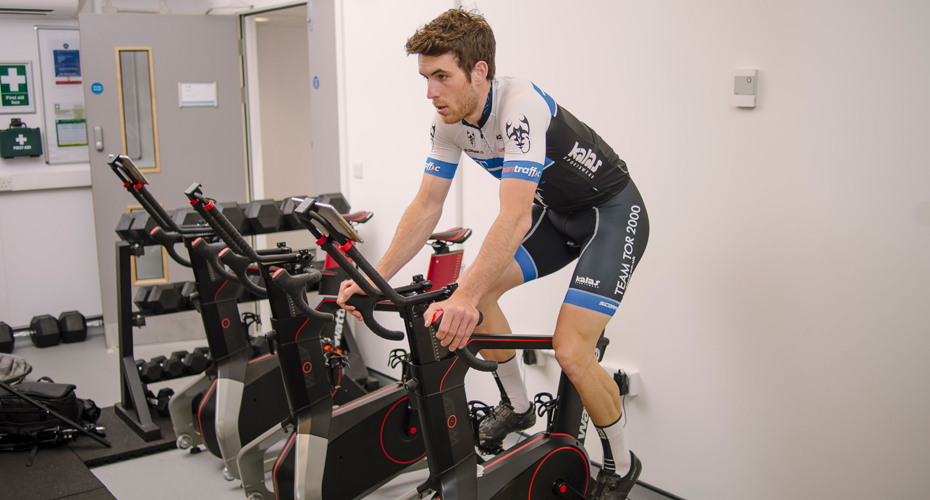
Two exercise physiology laboratories, each offering:
- a lode excaliber cycle ergometer
- cortex metabolic cart
- blood and muscle biopsy sampling
- intravenous infusion of nutrients and stable isotopes of amino acids, fatty acids, and glucose.
Resting metabolism labs
Two single and one double resting metabolism laboratory with:
- doppler ultrasound
- cortex metabolic cart
And capability for:
- bed rest and limb immobilization studies
- nutritional interventions
- blood and muscle biopsy sampling
- arteriovenous forearm balance
- intravenous infusion of nutrients and stable isotopes of amino acids, fatty acids, and glucose
360° tour of the resting metabolism lab
Click and drag to rotate the camera. Watch on YouTube
Gym
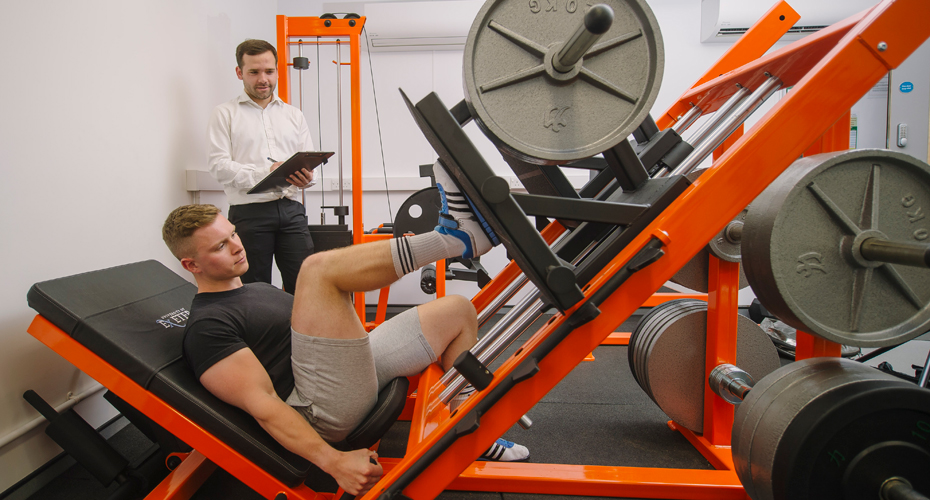
State-of-the-art gym with:
- power rack
- free weights
- unilateral leg press
- biodex dynamometer
- 3 Wattbikes Atom
- eccentric ergometer
- and capability for various exercise training protocols.
Kitchen

A metabolic kitchen and food storage for preparation of acute or prolonged dietary/supplement interventions and 2H2O and/or H218O methods.
Clinical research & analysis
We have access to DXA, 3T MRI, and a clinical research facility for the supply and administration of drugs such as insulin for glucose clamping, and research studies in patients.
Analytical facilities
We are interested in the mechanisms underpinning adaptation and so our analytical facility and expertise allows for methods including:
- low and high density RT-PCR arrays for muscle gene expression
- western blot for protein content/phosphorylation status
- HPLC
- spectrophotometric and radioenzymatic assays of muscle metabolites and enzyme activities
- fluorescence and electron microscopy
- and mass spectrometry/isotope ratio of stable isotopes.
We have multiple -80 °C freezers room for blood, muscle and saliva sample storage.
Group members
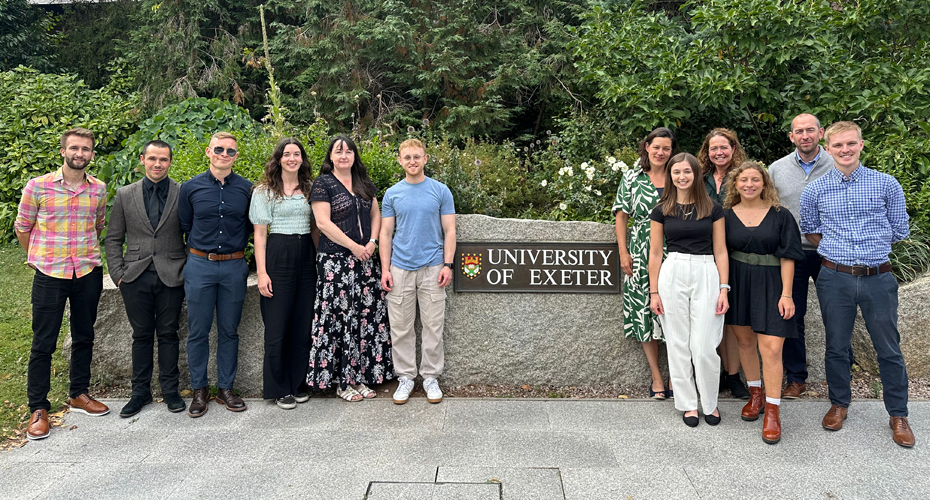
The Nutritional Physiology research group consists of:
- Professor Francis Stephens
- Professor Benjamin Wall
- Dr Marlou Dirks
- Dr Alistair Monteyne
- 3 post-docs
- 11 PhD students
Take part in our research
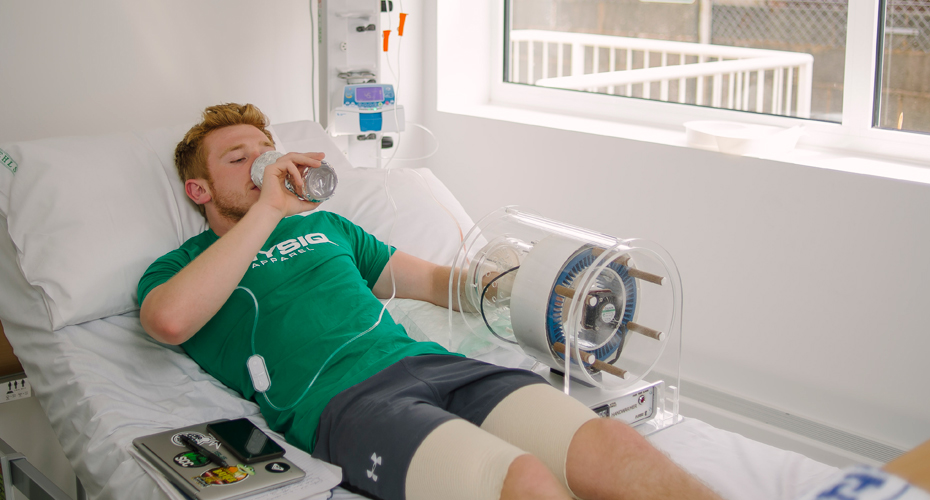
Study with us
Find out about our MRes in Nutritional Physiology
Fellowship opportunities
For information on fellowship opportunities in Nutritional Physiology, please contact Prof Francis Stephens or Prof Ben Wall.


